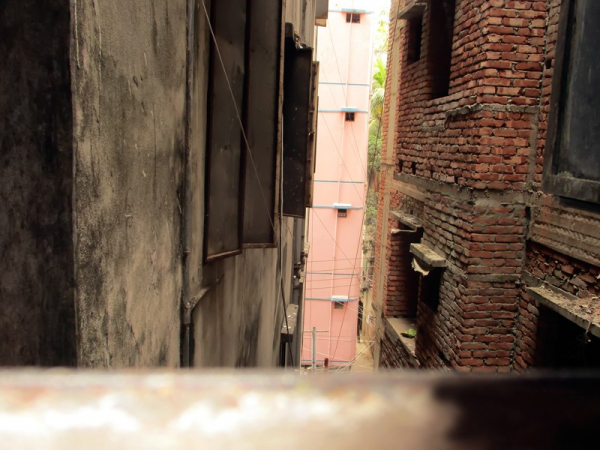By Sajeeb Sarker
Juxtaposition
Media School July 29, 2020

An old and decaying building and a new one, in one frame, create contrast. Photo by: Souvik Ayan
Juxtaposition is an artistic expression where two elements are placed close together or side by side, often to show or create a contrast between them. Two different elements are set in juxtaposition often with an intention to compare or contrast the two, usually to emphasize the similarities or differences between those two.
Juxtaposition is often expressed as a literary technique in which two (or even more) subjects (i.e. ideas, places, characters etc.) are placed together - side by side, in a narrative, with a purpose of developing comparisons and contrasts.
A closely related term with juxtaposition is 'Juxtaposability' which refers to the prospect in notations to show two related information by putting them side by side. Another close term is 'Juxtaposable' that means 'capable of being juxtaposed'.
The use of 'Montage' (placing two separate shots next to one another to create a third meaning) in films are popularly compared with the idea of juxtaposition in art or literature because both of them evoke the same sorts of effects.
A familiar example of juxtaposition can be found in literature (or, in movies) where different or opposing types of characters (e.g. a Hero and a Villain) are found to be placed in a common frame. Another popular example of juxtaposition is the juxtaposition of two characters: 'God' and 'Satan' in the epic poem 'Paradise Lost' by the English poet and intellectual John Milton (1608–1674), where the good qualities of God and the bad qualities of Satan are frequently placed side-by-side.
Useful readings
Anthony, Piers (1983). Juxtaposition. Vol 3 of Split infinity trilogy. Book 3 of The Apprentice Adept Series. Ballantine Books. ISBN: 0345282159, 9780345282156.
Lucas, Stephen (2015). The Art of Public Speaking. Boston: McGraw-Hill Education. ISBN 9781259095672.
Piaget, Jean (2002). "Grammar and Logic". Judgement and Reasoning in the Child. International Library of Psychology, Developmental Psychology. Vol. 23. London: Routledge. ISBN 0415-21003-8. [Original publication year: 1928]
Young, James O. (2001). Art and Knowledge. Psychology Press. ISBN: 041525647X, 9780415256476.


